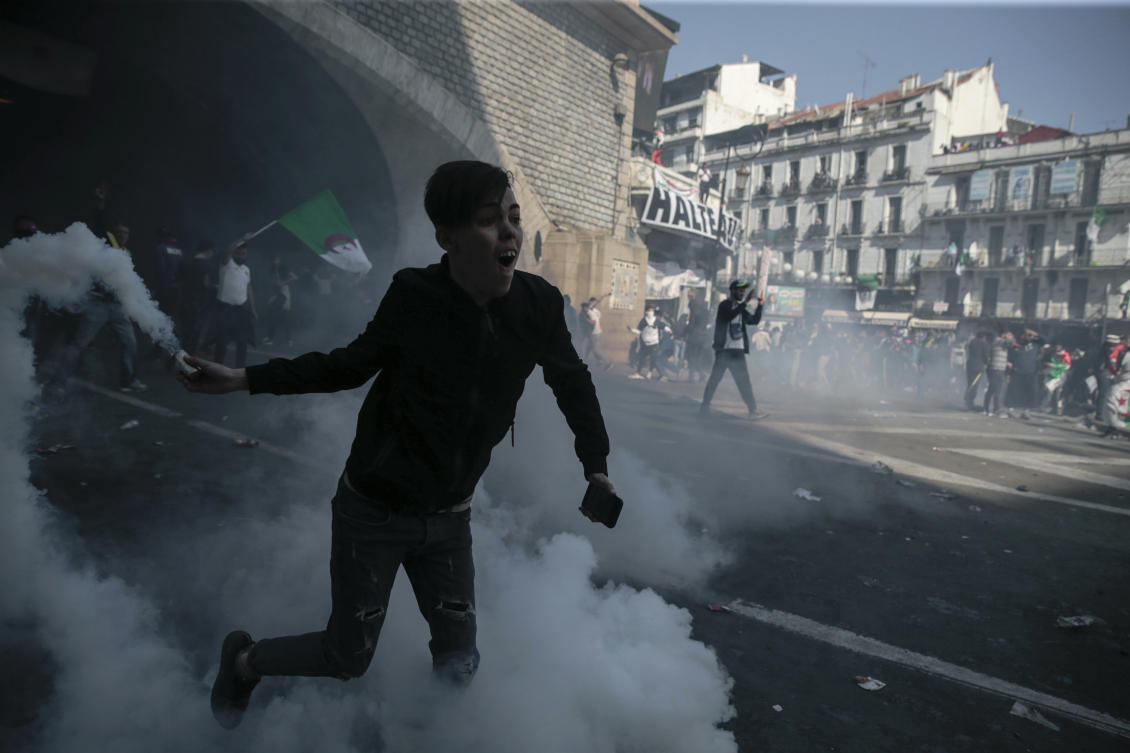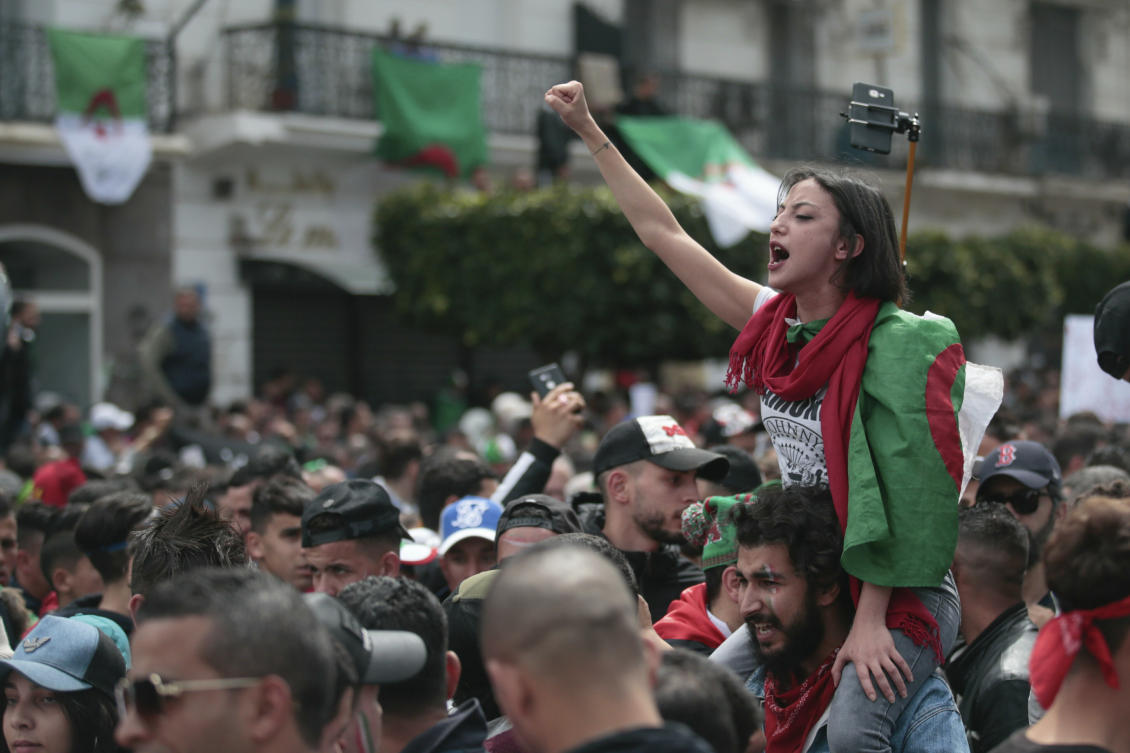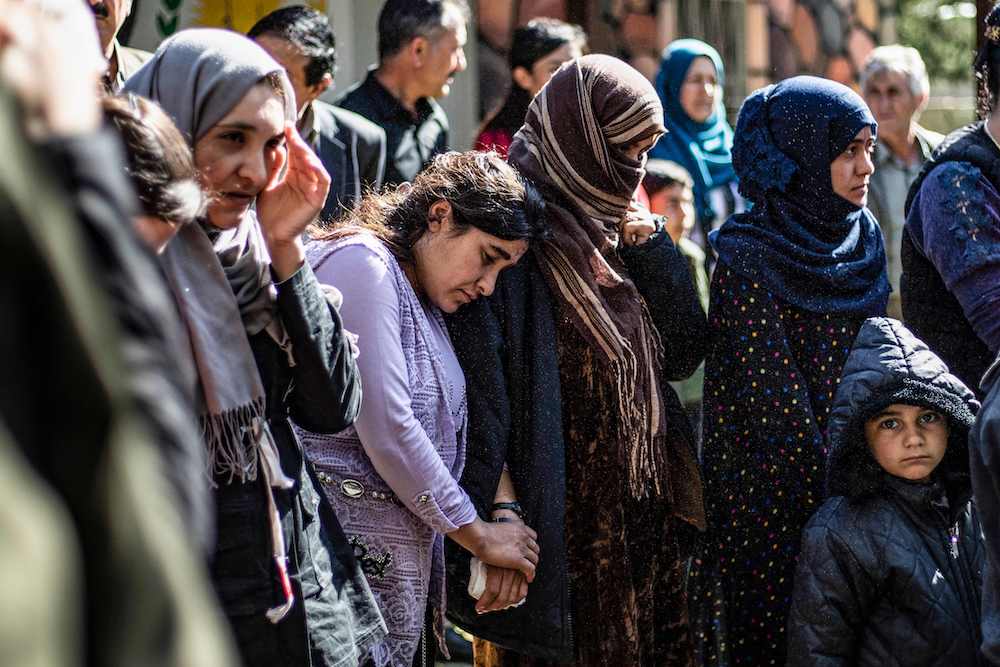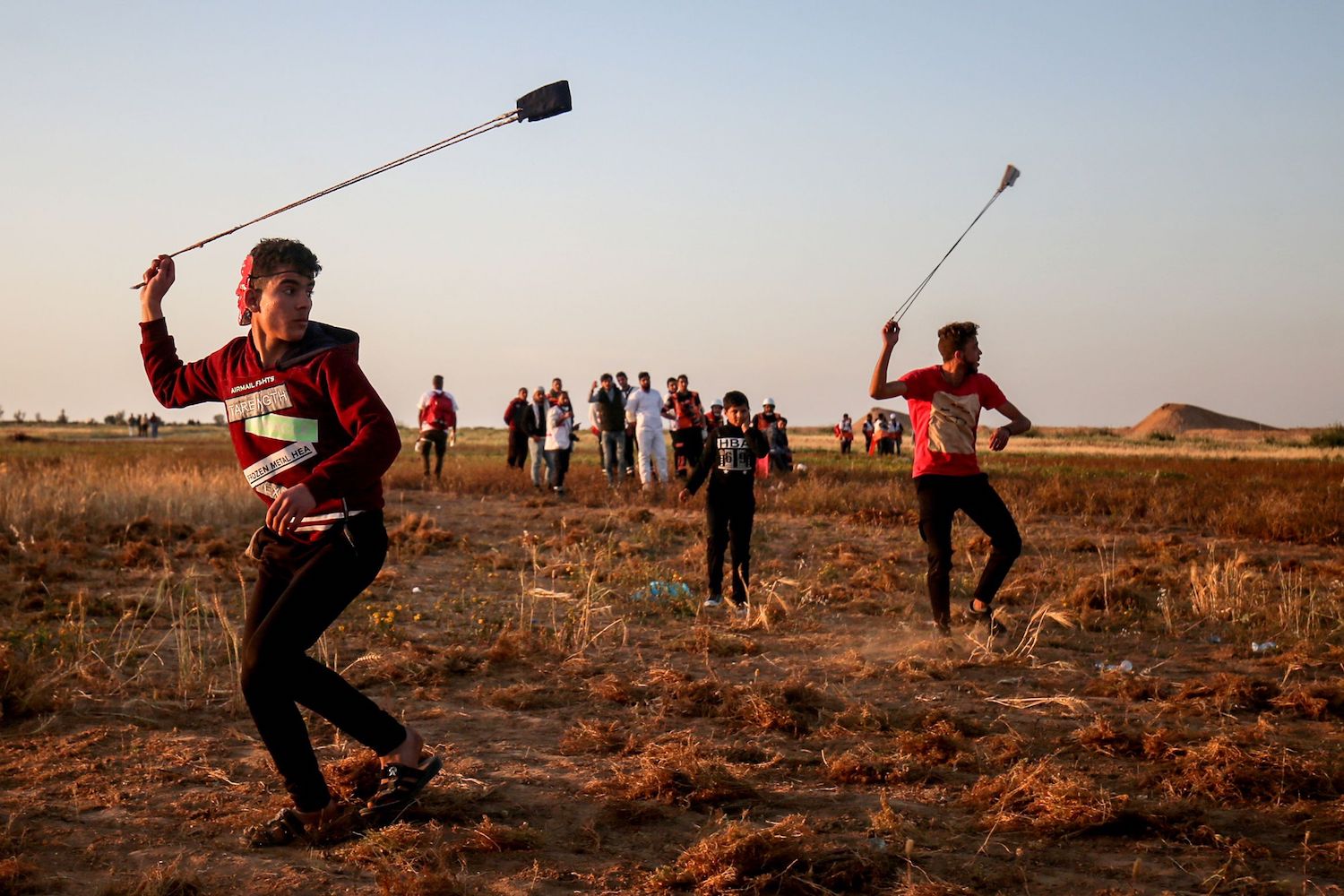Algeria activists fear tougher police tactics after Friday clashes
ALGIERS: Algerian civil society groups voiced concern Saturday about toughening police tactics, a day after officers in riot gear clashed with protesters, and reaffirmed their commitment to peaceful pro-democracy rallies.
Friday’s initially peaceful rally in central Algiers deteriorated into the worst street violence seen so far since marches began in mid-February demanding an end to the 20-year-rule of president Abdelaziz Bouteflika, who finally resigned on April 2, and his regime.
Police used tear gas and water cannon and scuffled with demonstrators, who in turn hurled stones and bottles, set alight at least one police car and turned large dumpsters into barricades.
Injuries were reported on both sides, and activists raised fears that the standoff has entered a new phase.
“Friday’s mobilization was different because of the scale of the repression,” according to Said Salhi, vice president of the Algerian League for the Defense of Human Rights.
Demonstrators have vowed to push on with rallies against the interim government of Abdelkader Bensalah and its plan for July 4 elections, arguing that leaders who emerged from the Bouteflika “system” cannot guarantee free and fair polls.
Salhi noted that the mood was different from early Friday outside the main post office in central Algiers that has become an emblematic protest site.
“It usually starts joyfully at the post office, but there was a desire on the part of the authorities to clear the area,” he said.
Salhi said a turning point had come three days earlier when police had for the first time tried to disperse a student demonstration in Algiers with tear gas and water cannon.
Political scientist Cherif Driss said that, while the demonstrations have continued unabated, “the police are trying to refocus, and are beginning to reduce the public space for expression.”
Driss added however that “the response remains moderate and professional, with mostly water cannons and tear gas. There is no brutal repression.”
Police put Friday’s violence down to “delinquents” infiltrating the crowds, and said 108 people had been arrested, while some protesters also blamed “troublemakers” for the clashes.
Driss said it was too early to tell whether Friday’s clashes were the result of “a strategy to limit demonstrations or a reaction to groups infiltrating” the protests.
The General Directorate of National Security reported that 83 police had suffered injuries. It denied having resorted to repressive tactics and said it was merely maintaining public order.
Several protesters were also injured, and at least one was hit in the chest by what appeared to be a rubber bullet, said an AFP photographer.
Activist groups stressed their commitment to non-violence.
“The protesters are very committed to the continuation of the movement in its peaceful form,” said Abdelwahab Ferfaoui of civic group the Youth Action Rally (RAJ-Algeria). “It’s the key to success.”
At Friday’s clashes, some demonstrators had placed themselves between rioters and police, raising their hands and chanting “silmiya” (peaceful) until the situation calmed, AFP journalists witnessed.
“People did not respond despite the repression, we saw citizens defending police officers,” said Salhi.
“But we want to move toward a political solution quickly to avoid desperation. Letting the situation deteriorate until the elections in three months is not a solution.”




Algerian military to support transition period: army chiefAlgeria protests keep up pressure on regime



